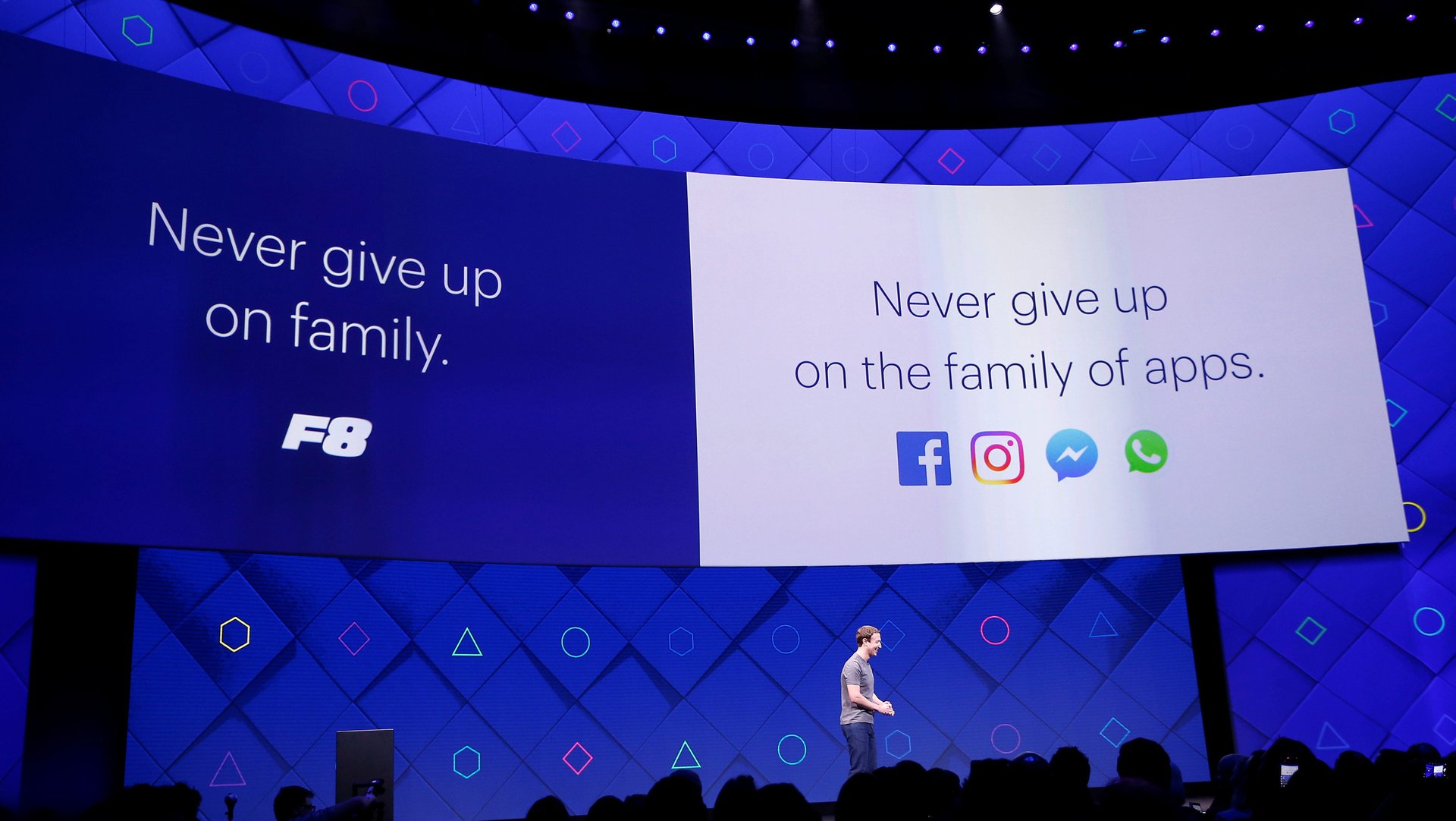Facebook may be ready to invade your physical world with an outrageously priced video device
As fellow tech giants Amazon, Google, and Apple go after the burgeoning smart device market, Facebook wants in too.


As fellow tech giants Amazon, Google, and Apple go after the burgeoning smart device market, Facebook wants in too.
Its product, digital outlet Cheddar reports, a voice-enabled video chat device named Portal, will directly compete with Amazon’s Echo product line to enter consumer homes. Rather than portray the device as a smart assistant, however, Facebook will position it as an extension of the social platform’s core use: another way for family and friends to stay connected—of course.
The company plans to formally launch the product in early May to coincide with its annual developer conference, Cheddar said, citing people familiar with the product.
But whereas Amazon and Google are flooding the market with cheap smart speakers, Portal comes with a hefty price tag of $499 (Amazon’s video device, the Echo Show, is $229.99). That steep price could drop to spur adoption, as CEO Mark Zuckerberg cares less about profits and has told employees that his goal is to change user behavior, Cheddar reports.
Like the Echo Show, revealed last May, Portal features a screen that can be used to hold video calls and stream music and video. Whereas Amazon has an existing ecosystem—which includes Amazon Prime Video and Music—that naturally integrates into its device, Facebook intends to rely on partnerships with services like Spotify and Netflix. Recently, the company signed music licensing deals with Sony/ATV and Universal Music Group.
Portal will also have facial recognition capabilities that will link its users to their Facebook accounts, according to people familiar with the company’s plans. The platform has heavily invested in facial recognition over the years, and most recently rolled out a feature to notify users of photos of them even when they aren’t tagged.
Facebook flirted with hardware in 2013 with the HTC First, also known as the Facebook phone, which was pre-loaded with Facebook’s user interface. It was a major flop.
Portal would be the first product to launch from Facebook’s secretive consumer hardware lab, Building 8, which has suffered a rocky start since its opening in April 2016. Expectations for the home product are running high, and its performance will shape how many more physical products we might expect to see from Facebook in the future.
Facebook declined to comment.